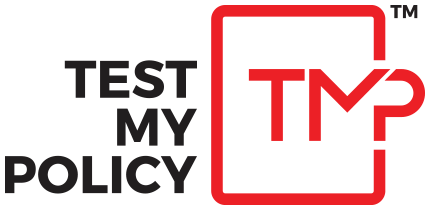
09-Aug-2021
- Team TMP
What You Need to Know Before Porting Your Health Policy
Shantanu, a 45 year old professional, suffers from hyper-tension and when he bought health insurance, he cited the health problem as a pre-existing medical condition. When the insurer raised premiums after two years, Shantanu decided to switch to a new insurer. But he feared the insurance company would impose a waiting period for his pre-existing conditions.
The Insurance Regulatory and Development Authority of India (IRDAI), India's insurance regulator, came to Shantanu's aid. The portability policy allowed him to switch to a new insurer without losing the benefits accumulated with the current insurer. The portability of health insurance is one of the most important aspects of insurance coverage in India. In 2011, IRDAI introduced health insurance portability as part of its Health Insurance Reform Act.
What is Portability of Health Insurance?
Portability allows policyholders to switch to another insurance company for better service or benefits offered. On making the switch, the policyholder is entitled to all benefits of his / her already acquired with the current insurer such as waiting period for pre-existing diseases.
Under the health insurance portability system, IRDAI offers insured persons and families the possibility to transfer policies from one insurance provider to a specialised health insurer. Existing and new insurers are required to complete the porting process within a set period.
The new insurer is free to define conditions of the policy such as medical cover, and all benefits and limitations that govern the new policy.
How to port health policy?
For the new policy to take effect with a new insurer, the policyholder must apply for porting their policy at least 45 days before renewal is due. The insured person can apply for porting the health policy as long as it is maintained without interruption. To change insurers, the policyholder must submit a written application to his current insurer for the porting of policy to the new insurer.
Once the insurance company has received an application for porting, it provides the policyholder with an application form. Once the new insurer has received your details, you must decide within 15 days whether to sign up for the policy. The current insurer must share the data of the insured person with the newer insurer, but not the details of the current policy.
If the policyholder does not submit the above documents in time, the IRDAI grants the new insurer the right to refuse the application for transferability of the health insurance. Another important factor that can lead to the rejection of the porting of your health insurance is the age of the insured. In some cases, an application against portable devices may be refused on grounds of age, health status or other reasons.
Therefore, it is advisable to provide your insurer with all necessary details and documentation before applying for portability of your health insurance policy. This makes the process smooth and stress-free and prevents your application from being rejected.
If you have an existing health policy, you can test it testmypolicy.com to know if porting your policy is the right move for you. You can also compare benefits of your policy with similar health plans and know if you’re paying optimum premium for your policy.
Testmypolicy.com generates a report that tells you if you’re adequately covered, what features and benefits your policy offers or not, what limits does it impose, and if you can get better coverage for a similar premium.
Need a more detailed guide on how to buy family floater health insurance? Download this free e-book written by our insurance experts. The ebook offers you well researched, unbiased guidance and advice on choosing a health policy and lots of examples to explain complex terms surrounding health insurance.
Recent Article

28-Jan-2022
Super-Boost your health cover with Super Top-Up
The past few years have been a period of uncertainty and a bearer of bad news. Just when we thought this catastrophe was

08-Sep-2021
The Importance of Health Insurance
What is Health Insurance?
Health insurance is an agreement whereby insurance company agrees to

09-Aug-2021
What You Need to Know Before Porting Your Health Policy
Shantanu, a 45 year old professional, suffers from hyper-tension and when he bought health insurance, he cited the health

08-Jul-2021
Looking for Family Floater Health Insurance? Read this first.
A family floater health insurance protects you from high medical costs that may arise from the hospitalisation of your fa

08-Jun-2021
How to Save on the Premium Of Your Health Insurance?
Today every insurance company claims that they have the best health policy plans to offer. As customers, we also want a p

08-May-2021
A Simple Guide to Comprehensive Health Insurance
A health emergency can be a serious drain on one’s finances and resources. With the cost of quality health care and



